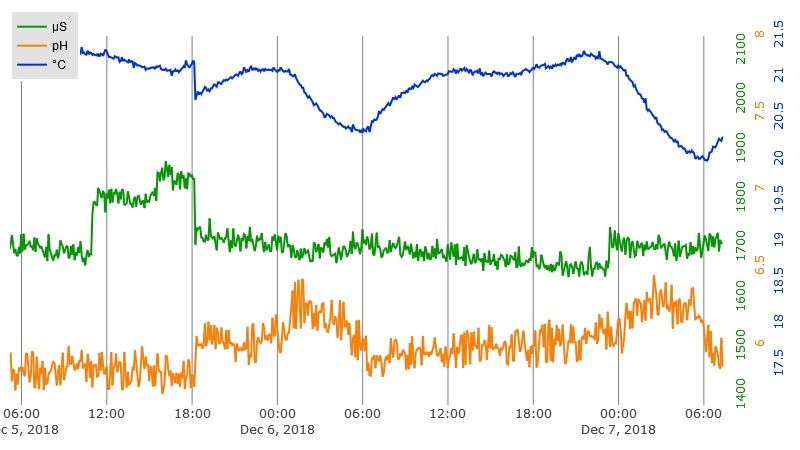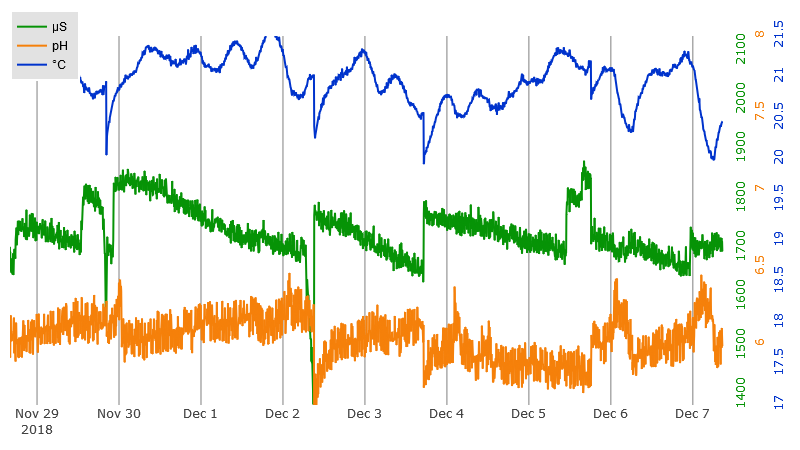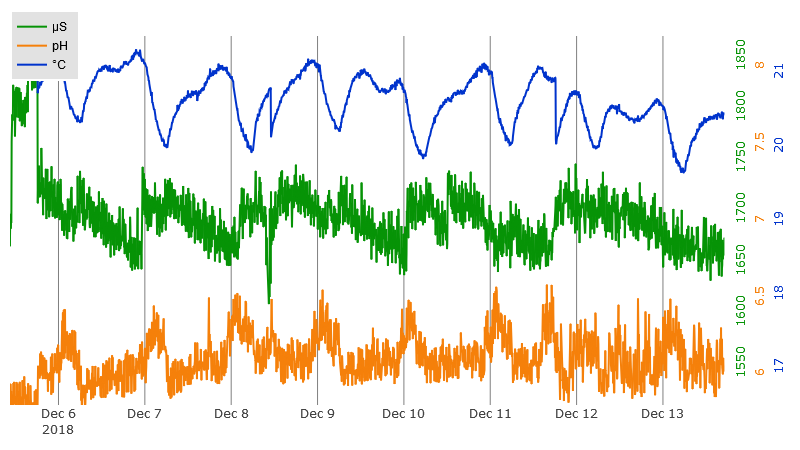I am currently growing lettuce in a hydroponics system that I'm developing. The system has continuous pH monitoring and I recently noticed that when the lights go off at night the pH seems to increase. Is there some biological effect that would account for the pH increase? The pH seems to go back down when the lights come back on. The lights go out at around midnight and come back on at around 6am.
The first plot below shows recently logged data from the system. The second plot includes additional days before Dec 6-7 where the lights were on 24/7. Note that the sharp changes in pH/EC/Temp are caused by adding (cold) water and adjusting the nutrients. The big negative spikes in EC happen when the water level goes below the EC probe.
EDIT: Added another plot to show longer time frame. Only time it doesn't really show up is when the nutrients/pH/water were adjusted just before the lights went off on Dec 12 at midnight.



